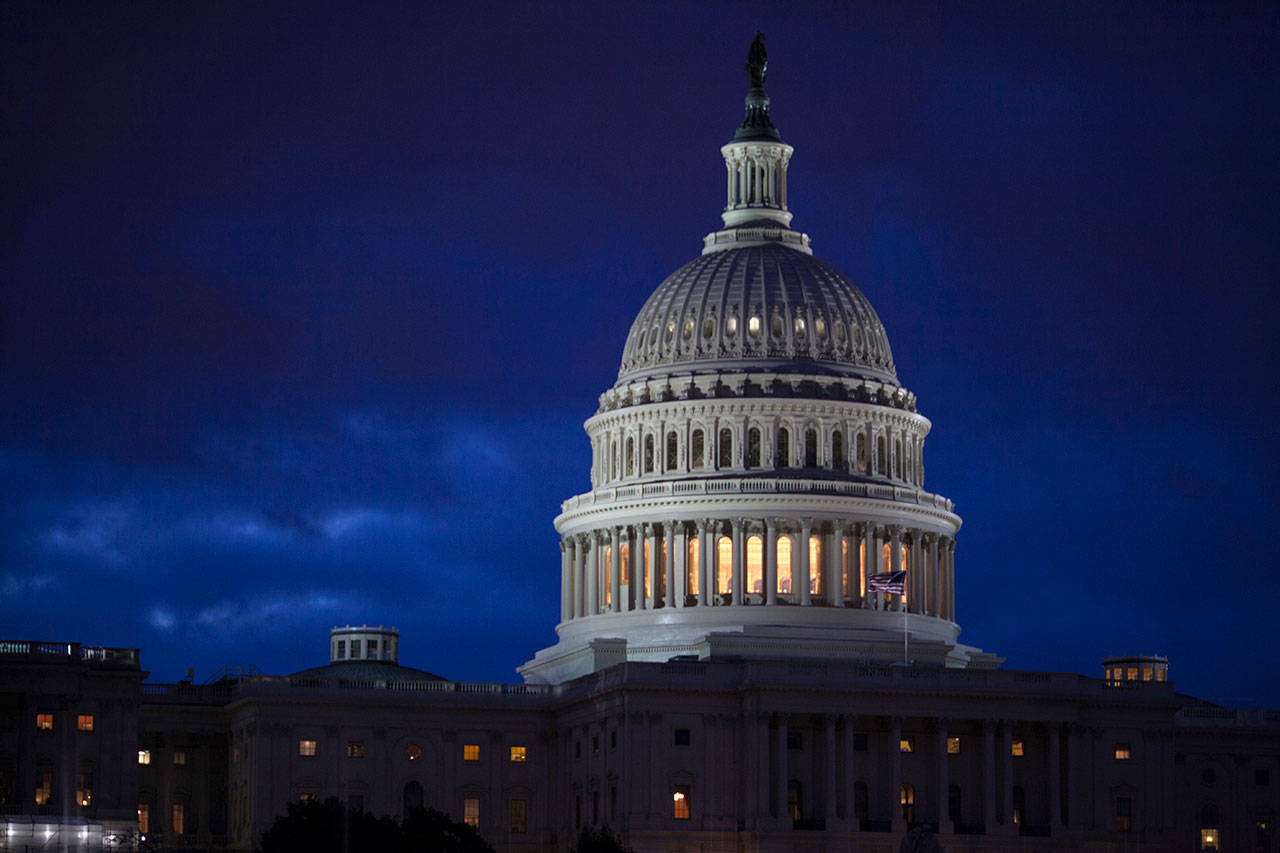By The Herald Editorial Board
Crisis averted. On to the next one.
Budget negotiators in Congress revealed a $1.1 trillion spending bill early Monday morning for the current fiscal year, that — assuming it’s adopted by House and Senate and signed by the president by the end of the week — will avert a looming government shutdown and keep it in business until at least Sept. 30.
Praised as a bipartisan budget, the spending included $26 billion more in military spending than last year and $1.5 billion for border security enhancements, though it did not fulfill President Trump’s request for a “down payment” on his proposed border wall.
The budget, at the same time, rejected many other cuts suggested by Trump’s budget writers that would have debilitated many programs and services from the national level on down to individual communities, including medical research by the National Institutes for Health, cleanup projects by the Environmental Protection Agency, student assistance through Pell Grants, preservation of women’s health and family planning funds, grants for public schools and $3 billion for the Department of Housing and Urban Development’s Community Development Block Grants.
The block grants, which the Trump administration had identified for elimination, are provided to cities and counties to meet local needs, including affordable housing, assistance for food banks, child care programs, Meals on Wheels and other programs for seniors, but also infrastructure and public safety improvements in communities. And while the block grants don’t provide full funding for those programs, the money leverages funds from other sources, public and private.
In a story in Sunday’s Herald, reporter Chris Winters detailed what Community Development Block Grants have provided in Snohomish County and what their loss could mean for local governments and the groups that administer assistance programs.
Since 1977, three years after the start of the block grant program, Washington state communities have benefited from $2.5 billion in grants. Elimination of the program would mean a loss of about $51.4 million annually within the state.
Over the years, federal block grants have helped renovate a fire station and paid for a new fire engine and ambulance that serve Fire District 24 in Darrington. Block grants also have helped Darrington as it replaces water mains. It’s funding that Darrington area taxpayers wouldn’t have been able to support on their own, local officials said.
Pick a community in Snohomish County and block grants have provided needed funding to feed kids and seniors, keep families in their homes and found housing for those without, weatherize homes and save energy costs and help communities keep the water flowing and fire engines ready for emergencies.
Monday’s budget deal now preserves the block grants program through September.
Shortly after releasing Trump’s budget proposal for the 2018 fiscal year, his budget director, Mick Mulvaney, defended many of the proposed cuts, suggesting that programs such as Meals on Wheels couldn’t be funded any longer, “just because they sound good.”
Also Sunday, The Herald published an examination of the value of Meals on Wheels and similar programs by two professors at the State University of New York’s Binghamton University, that agreed taxpayer money needs to be spent wisely but asked whether programs and their achievements are being judged fairly by those seeking to cut them.
More than feeding shut-in seniors and providing some regular company — which on its own should be viewed as worth the money spent — Meals on Wheels also provides a significant cost savings to the government. The professors, David Campbell and Kristina Lambright, pointed to a Brown University study that found that a 1 percent increase in the number of lower-income seniors receiving regular meals at home could save the federal Medicaid program $109 million annually because it would allow those seniors to remain in their own homes instead of moving to nursing facilities.
Monday’s budget deal was good news because of the programs that will be continued at least through September. But the deal’s bipartisan nature also shows that members of Congress can come to agreement through compromise and, maybe, even see the value in the other side’s priorities.
Maybe during the next five months they can show us they can repeat the task, absent the threat of a government shutdown.
Talk to us
> Give us your news tips.
> Send us a letter to the editor.
> More Herald contact information.

























